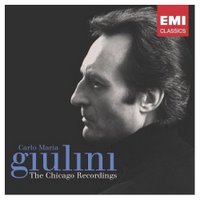 Whe you walk, as I did the last couple of weeks, through the colossal pieces of the sonorous architecture reaching a cd like this is like entering a old house hidden in the belly of a huge city, with a beautiful garden unbelievably quite and close to nature. This was my feeling when I spent the time listening to it. Yet again I found myself enjoying so much the talent of Alfred Brendel and telling myself again that I have to get more of his music. Not the first on my list of favourite pianists he still has to dissapoint me. His Mozart is beautiful, his rendition of Beethoven Bagatelles is one of the best I know and now, his Schubert is in a class of its own.
Whe you walk, as I did the last couple of weeks, through the colossal pieces of the sonorous architecture reaching a cd like this is like entering a old house hidden in the belly of a huge city, with a beautiful garden unbelievably quite and close to nature. This was my feeling when I spent the time listening to it. Yet again I found myself enjoying so much the talent of Alfred Brendel and telling myself again that I have to get more of his music. Not the first on my list of favourite pianists he still has to dissapoint me. His Mozart is beautiful, his rendition of Beethoven Bagatelles is one of the best I know and now, his Schubert is in a class of its own.The most amazing thing with Brandel is, for me, the amazing sensitivity he manages to express through music. Everything is heartfelt and human. His technique is exceptional and serves the expression to full extent. Schubert's music is one the best vectors for his musicality. Although I prefer Arrau's take on this music, I found Brendel to be a refreshing alternative. This cd is a nice glimpse into Brendel's view on Schubert. The main feature is the sonata D. 959. A beautiful version, very articulate, shining and radiating sincere and heartfelt music. Brendel takes a lighter approach compared to Arrau yet the whole scenery is there in beatifully crafted detail. It leaves no need for more and the audition leaves you with a beautiful feeling over the unbearable lightness of being. The other pieces on this cd are treated by the Austrian pianist with the same care and attention to detail. The Hungarian melody is a shocker. Such a small piece unfolds such a powerful drama that is hard to believe. In three minutes an entire destiny is pulsating to a painful climax and than abandons itself to peace. It's a little musical jewel and it's the only place I know of you can listen to it. Beautiful! The same qualities are manifest in the 16 German dances. Brendel manages to bring to light their individual character in a beautifully contoured performance.
The way Brendel plays Schubert give all the reasons for him being a living legend and dean of the contemporary pianists. For those who are not familiar with him or his approach to Schubert this is a good start. It is a most rewarding experience.
